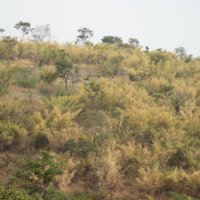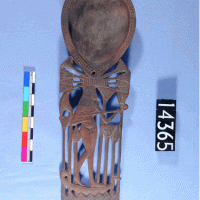I have received several emails asking about the contract farming project in the village, which has been organized with the Hotel Club du Lac Tanganyika. We are hoping to invigorate the activity during this rainy season – before the rains are finished.
By way of reminding you all about the project, here is a posting sent at the initiation of the activity, about two years ago. Dynamics remain the same for every new season:
Our contract farming scheme in the nearby village, which is being implemented with village smallholders in conjunction with the Hotel Lac Tanganyika, is progressing slowly – but with great enthusiasm. Slowly, for several reasons:
1, The need to verify seed viability before they are widely distributed The Imbo plains along Lake Tanganyika are sandy and relatively impoverished, and even though we are heavily manuring the test plots (with goat manure), the germination and growth of the seeds must be assessed. This is especially important because the majority of seeds have come from Kenya, Italy of the U.S. And seeds purchased locally often do not germinate.
2. Small holders here are very cautious about investing in a new enterprise. Land and labor are the major issues: Land is scarce, and most smallholders do not own land but must rent it. And the cash outlay is, for most, difficult to come by. Labor is not only an issue with regard to planting and maintaining the crop, but also preparation of the land itself. And with a technology consisting only of hoe agriculture, this can be considerable: Therefore we want to be sure of introducing viable products.

Easier in this area to clear the land, but still considerable work for a widow with only young children
3. The vegetables are to be organically raised – no chemical insecticides. I therefore have been experimenting with a variety of organic insecticides, with the goal of identifying a product that is easy to make, cheap (using readily available products), and one that lasts one or two weeks.
After some trials, I think we have a product that meets these criteria. Red (hot) peppers (or chili powder) boiled about half an hour with onion and garlic added. It is easy to make, kills the bugs, and lasts about two weeks. Red peppers are very common, and the product will also work without the onion and garlic (which are a bit pricy).
4. Suitable transfer of technology: On problem with many contract farming schemes is that the introduced technologies – whether planting materials, marketing structures, or other – are not sustainable outside of the project. We are trying to introduce technologies that will work in the local farming system and that will continue well into the future, and that can be taken up by other smallholders, and also whose products can be marketed successfully in Bujumbura – the nearest large market town.
A feature of the horticultural crop production in our area is that it is restricted almost solely to one variety of lenga-lenga (amaranth). Introducing a variety of crops that can be equally well-grown – using biological insecticides as necessary – can help to enhance local household incomes. Local farmers know this, and so are watching our results carefully.

Hindy, 100% African dog – beside the hand-dug well that is used for watering. The water table is quite close to the surface here and this allows farmers to dig wells with relative ease.
=============
We now have trial plots in which a few of all of the vegetables are being planted and treated, and which we are using not only for demonstration, but also for systematic training of farmers joining the program.

Trial plots growing next to rice, with hills of the Congo in the background. Seedlings from the trial plots are now ready to be outplanted.
This morning we evaluated the outplanting of cabbages, corn and green beans (companion planting), (etc)and the subsequent impact of our new organic pesticide mixture on them.
These are looking good. However, a variety of seeds of other vegetables are not sprouting – or are not sprouting well, which could be either a result of seed viability or problems with the local environment. I will be getting some other seeds from here and from Kenya, to put in further trials.

On the left, cabbage has already been outplanted with maize as a companion plant. On the right, green beans and maize as companion plants. The two palms in the background are oil palms, some of the last remaining of a very large ‘plantation’ of oil palms that grew here over ten years ago.
Tomorrow morning several farmers will be coming to sign contracts, and receive seeds. We are beginning with amaranth, radishes, and several other types tfrom the trials that are growing well.
Related articles
- The Social Life of Beans in Burundi – Part 2 (dianabuja.wordpress.com)
- Contract Farming between Thailand and Lao (ireport.cnn.com)
- Post-War Peace by Lake Tanganyika: Riding Pretty (dianabuja.wordpress.com)




























Pingback: . . . And Then the Rains Came: Coping in Kajaga Village | DIANABUJA'S BLOG: Africa, the Middle East, Agriculture, History & Culture
Pingback: Special Times at the Hotel Club du Lac Tanganyika – Come Visit!! | DIANABUJA'S BLOG: Africa, the Middle East, Agriculture, History & Culture
Contract Farming is great strategies for rich and poor farmers because it saves rich farmer’s time and provide job to poor farmers .
LikeLike
Thank you for your kind comments about Eric. It helps me to know that his adventures with Flynn brought enjoyment to many people. We miss him very much, but now we have to think of Flynn as they were born in the same litter and always did everything together. We let Flynn say goodbye before we buried Eric and I do believe he understands.
LikeLike
Pingback: Seed Exchange Programme As A Innovative Approach For Technology Spread: Krishi Vigyan Kendra, Karda (Washim) | Small Garden Ideas